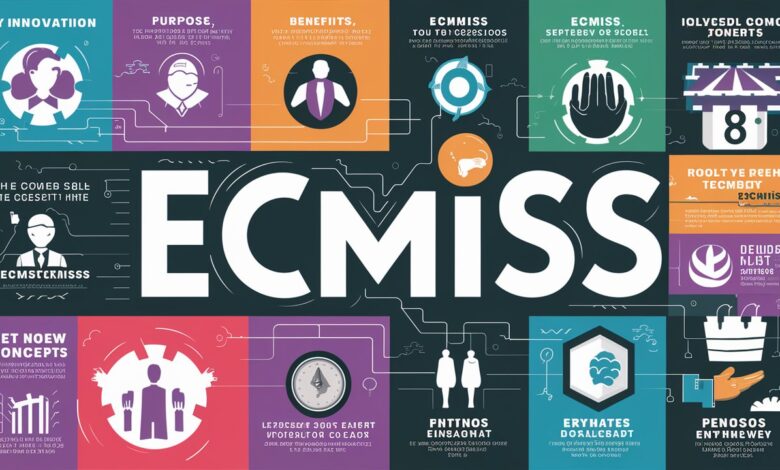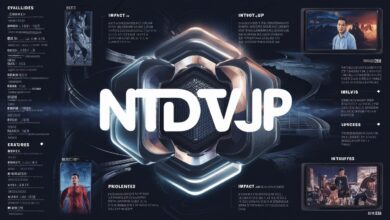What Is ECMISS? Everything You Need to Know About This Innovative Concept

In a world that constantly embraces innovation, new terms, technologies, and systems emerge regularly—transforming how we live, work, and communicate. One such term that has recently gained attention is “ECMISS.” Whether you’ve come across it in a professional setting, online forum, or industry newsletter, there’s a growing curiosity surrounding what ECMISS actually is, how it works, and why it matters. In this comprehensive guide, we’ll explore the meaning, applications, benefits, and future implications of ECMISS. By the end of this article, you’ll have a thorough understanding of the concept and be equipped to leverage it for personal, professional, or organizational growth.
What Is ECMISS?
ECMISS is a term that may be interpreted as either a technological framework, a strategic approach, or even a brand name depending on the context in which it is used. While it may sound like an acronym or a coined term, its applications are becoming increasingly versatile across various industries.
If we treat ECMISS as a conceptual innovation, it could stand for something like Enterprise Communication Management and Intelligent System Solutions, hinting at a sophisticated system that combines communication, automation, and intelligent analytics for businesses. On the other hand, ECMISS might also represent a branded product or service that provides cutting-edge tools in IT, healthcare, education, or corporate communication.
Regardless of its origin, the core purpose of ECMISS is to enhance efficiency, streamline communication, and integrate intelligent decision-making capabilities within a unified ecosystem.
Key Features and Functions of ECMISS
To truly understand ECMISS, it’s crucial to delve into its core components and functionalities. One of the key features often associated with such systems is centralized communication management. ECMISS platforms may allow users—whether in a corporate environment or educational institution—to manage emails, chats, notifications, and project updates from a single interface, reducing clutter and confusion.
Another major function is intelligent automation, which helps eliminate repetitive tasks and improves decision-making through data-driven insights. Imagine a system where customer queries are analyzed and routed intelligently based on priority, tone, and context, or one that generates performance reports without manual input.
If ECMISS is designed for healthcare or research, predictive analytics and patient management may be central features. If used in IT, it may offer robust API integrations, modular architecture, and machine learning capabilities.
The flexibility of ECMISS across sectors makes it a highly adaptable solution for organizations that seek smart digital transformation.
Benefits of Using ECMISS
The rise of platforms like ECMISS signals a shift toward more intelligent and integrated operational frameworks. Here are several benefits users or organizations might experience:
-
Improved Communication Flow: Whether it’s internal communication among teams or external communication with clients, ECMISS streamlines interactions and ensures message clarity and consistency.
-
Enhanced Productivity: Through automation, routine tasks are managed effortlessly, allowing employees to focus on high-value, creative, or strategic work.
-
Data-Driven Decision Making: ECMISS platforms often provide dashboards and analytics that support informed decision-making, making businesses more agile and responsive.
-
Scalability and Flexibility: The modular design of such systems allows easy customization and scalability according to business size and industry-specific needs.
-
Cost and Time Efficiency: By consolidating several systems into one and reducing manual errors, ECMISS leads to significant cost savings and operational efficiency over time.
Applications of ECMISS Across Industries
ECMISS is not confined to one specific domain. Its adaptability allows it to be implemented across numerous sectors:
-
Corporate and Enterprise: Used for managing HR, CRM, project collaboration, and communication in large firms.
-
Education: Facilitates blended learning, attendance tracking, and centralized educational content delivery.
-
Healthcare: Supports telemedicine, electronic health records (EHRs), and smart diagnostic tools.
-
Logistics and Manufacturing: Improves supply chain visibility, equipment monitoring, and predictive maintenance.
-
Government and Public Services: Enhances service delivery, complaint management, and citizen engagement platforms.
Challenges and Considerations
While ECMISS offers a host of benefits, it’s not without challenges. Implementing such a comprehensive system requires investment, training, and organizational change management. Additionally, issues like data privacy, security vulnerabilities, and integration complexities need to be carefully addressed. Choosing the right vendor or solution provider is critical to avoid disruptions and ensure the system aligns with existing workflows.
The Future of ECMISS
Looking ahead, ECMISS could play a central role in the AI-driven digital transformation movement. With the rise of machine learning, edge computing, and real-time collaboration, future iterations of ECMISS may become even more autonomous and adaptive. Enterprises may increasingly rely on it to navigate complex environments, reduce risks, and anticipate market shifts.
We are also likely to see vertical-specific ECMISS platforms, tailored to industries like finance, construction, legal, and tourism, each with custom features addressing their unique workflows and regulatory requirements.
Conclusion
ECMISS represents more than just a buzzword—it’s a symbol of the new digital era where intelligent systems, streamlined communication, and efficient management are no longer optional but essential. Whether you’re a decision-maker in a business, a tech enthusiast, or someone simply curious about emerging technologies, understanding ECMISS can give you an edge in adapting to future challenges and opportunities.
As industries continue to evolve, embracing frameworks like ECMISS will be a vital step in staying competitive, efficient, and forward-thinking.
🔹 Frequently Asked Questions (FAQs)
Q1. What does ECMISS stand for?
While ECMISS can have various interpretations, it often refers to systems or platforms involving Enterprise Communication Management and Intelligent System Solutions.
Q2. Is ECMISS a software or a concept?
It can be both—a conceptual framework for communication and management efficiency or a specific software/product depending on the provider.
Q3. Who can use ECMISS?
ECMISS can be used by corporations, educators, healthcare providers, and government bodies—anyone needing integrated communication and data management.
Q4. How is ECMISS different from traditional systems?
Unlike traditional systems that work in silos, ECMISS integrates communication, data analysis, and automation in one platform.
Q5. Is ECMISS secure?
Security depends on the implementation. Top-tier ECMISS solutions often include encryption, access controls, and regular updates to ensure safety.



